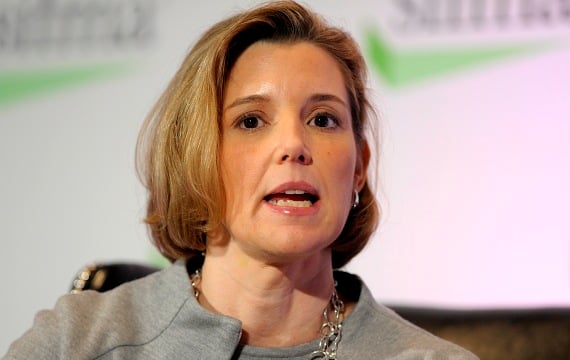According to Sallie Krawcheck, investors are happy with their financial advisers; they just don't like the firms their advisers work for.
“Clients continue to like, trust and admire their financial advisers. In terms of client satisfaction, we're within spitting distance of where we were before the financial crisis,” said Ms. Krawcheck at a conference sponsored by the Securities Industry and Financial Markets Association. “However, they are disappointed with the advisers' institutions.”
Ms. Krawcheck, eight weeks out from losing her job as head of global wealth management at Bank of America Merrill Lynch, was interviewed by PBS journalist Charlie Rose at the annual meeting of SIFMA this morning in New York City.
“In some ways, the industry is in better shape than conventional wisdom would have us believe," she said. "And in other ways, we still have risks and challenges to confront.”
Ms. Krawcheck said the industry still needs to home in on financial planning and client service, rather than just investment performance, if it wants to regain the trust of investors. “We're still not talking enough about planning and liquidity management, and protecting against the downside,” she said. “Surveys indicate that investors want their advisers to help them with a financial plan and they want them to return their phone calls.”
She also said that Wall Street needs to step back from the culture of crisis it's been operating under for the last several years. “Years and years ago, the markets went from being arenas for capital allocation to being betting mechanisms. We need to step back from that,” Ms. Krawcheck said.
Women and younger investors particularly have not been well served by the industry, she said. “The next generation is not coming into the markets. Everything they've seen tells them they don't want to be in the markets and they don't trust these guys,” Ms. Krawcheck said. “It's a significant challenge for the industry."
RELATED ITEM Secrets to advising women
Ms. Krawcheck also expressed dismay at the still relatively small number of women working on Wall Street. In the wealth management industry, about 16% to 18% of financial advisers are women. She recalled speaking to women at a Harvard Business School event recently. “I felt sad that 25 years on from when I was at university, we weren't further along [in terms of female employment.]”
Ms. Krawcheck does not see the economy improving rapidly from here. “It's hard not to walk around a little depressed about things. We're in a period of deleveraging, and coming out of this downturn is different,” she said. And until investors get some good economic news, they will continue to be skittish about the markets, she said.
“You hear investors saying, ‘I didn't know I had to be worried about U.S. and European government debt.' If it's not one thing, it's another,” Ms. Krawcheck said. “It's hard to be confident to get back in the market, given the situation.”
In likely contrast to many of her peers, she sees the greater involvement of regulators in the industry as a potential positive. “The regulators are much more of a presence in the industry now — and deservedly so,” Ms. Krawcheck said. “It may be tougher to get things done, but it's not such a bad thing for the business.”
Ms. Krawcheck did not adress her recent departure from Bank of America or her plans for the future.







